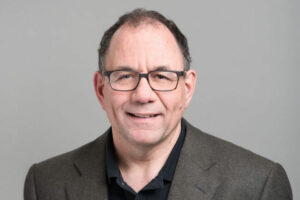
JULY 15, 2024 • By Matthew Tierney
Control theorists see systems everywhere: how blood cells circulate in the human body, how autonomous cars negotiate traffic, how water networks handle precipitation.
Control theorists also see ways to make systems behave more safely and efficiently.
“We are mathematical engineers,” says ECE professor Margaret Chapman. “We put together mathematical principles to build new tools to help understand and improve the operation of systems.”
Chapman recently received an NSERC Discovery Grant to advance an overlooked paradigm within the field called risk-aware control. It’s a departure from standard paradigms, which assume either typical (average-case) circumstances or the most detrimental (worst-case) circumstances.
The average-case paradigm works well when the consequences for failure are minimal, such as when you’re travelling to work and there’s some leeway with your arrival time. A worst-case strategy is best when consequences for failure are catastrophic, such as on an airplane.
“Instead, risk-aware control takes into account possibilities between the worst case and the average case, which may benefit applications that do not neatly fit within the traditional paradigms,” says Chapman.
To advance risk-aware control theory, Chapman is adapting ideas from finance to develop new analysis and design tools for control systems. Her survey of risk-aware control coauthored with her former student Yuheng Wang (ECE MASc 2T3) was published in Artificial Intelligence. Under Chapman’s supervision, Dhairya Patel (ECE MASc student) recently developed an alternative pathway for risk-aware optimal control with many cooperating agents, to appear in IEEE Control Systems Letters.
“Innovation can happen when someone discovers a concept in one field and then repurposes the concept to be useful in another field,” says Chapman. “This is one reason why clarity of technical communication is absolutely essential for advancing knowledge.”
In addition to advancing risk-aware control theory, Chapman is investigating nontraditional control system applications, including stormwater management and cancer treatment.
“While water and cancer systems have obvious differences, they both can be studied through a control-theoretic lens, and there is great potential to improve their performance using ideas from control theory,” says Chapman.
In 2023, she was awarded the Connaught New Researcher Award, which is funding the development of a simplified yet representative model of a complex urban drainage network. Chuanning Wei (ECE MASc student) is pursuing this project under Chapman’s supervision. The project was inspired by the occurrence of overflows of untreated wastewater and stormwater that plague many cities in North America, including Toronto.
In another project, Chapman seeks to improve leukemia treatment protocols in collaboration with Professor Steven Chan, M.D., Ph.D. of the Department of Medical Biophysics and the Princess Margaret Cancer Centre. While the current nominal treatment protocol has the advantage of being simple to implement, it uses data from one time point to inform whether the dose should be increased or decreased by a fixed amount.
“Instead, a control-theoretic approach would use patient data from the past to tune a mathematical model,” says Chapman. “This model could be used to predict future changes in white blood cells and optimize chemotherapy doses for a particular patient.”
The objective is to choose doses that keep the white blood cells within a safe range, which is called a regulation problem in the control system field. Trent Suzuki (ECE MASc student) is undertaking this project under Chapman’s supervision.
“The intersection of medicine and control theory is ripe with potential for innovation,” says Chapman. “While innovation is exciting, it must be pursued responsibly. Hence, any new treatment protocol that we design must satisfy the safety requirements of clinical practice.”
“One of academia’s strengths is the runway it allows talented engineers such as Professor Chapman to innovate, particularly on such a foundational level,” says Professor Deepa Kundur, Chair of ECE. “The deep, mathematical nature of such solutions often have a myriad of applications, as her many projects so aptly demonstrate.”


